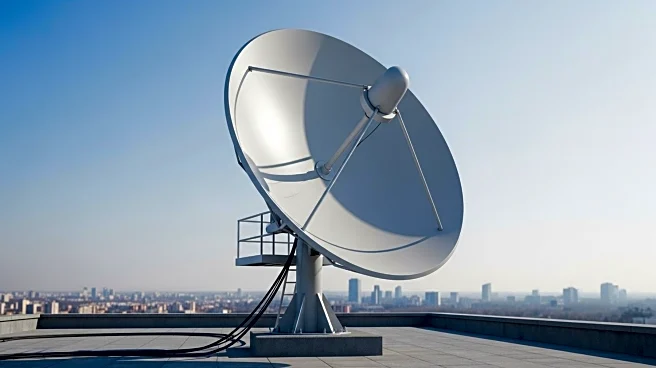What is the story about?
What's Happening?
Researchers from the University of Maryland and the University of California, San Diego have discovered a method to intercept sensitive data from satellites using low-cost consumer-grade equipment. By scanning geostationary satellites, they were able to collect unencrypted data from the U.S. military, telecommunications firms, and major businesses. The study highlights the lack of security attention given to satellite communications compared to other technologies.
Why It's Important?
The findings reveal significant vulnerabilities in satellite communications, which are critical for global data transmission. The ability to intercept sensitive data with inexpensive equipment poses a threat to national security and corporate confidentiality. Organizations relying on satellite communications must enhance their security measures to prevent unauthorized access. The study emphasizes the need for standardized encryption protocols to protect data transmitted via satellites.
What's Next?
Policymakers and industry leaders may push for satellite communications to be designated as critical infrastructure, prioritizing security investments and assistance. Organizations using satellite links will need to implement encryption protocols and monitor their communications for potential vulnerabilities. The research may lead to increased awareness and efforts to secure satellite communications against unauthorized interception.
Beyond the Headlines
The study raises ethical concerns about the ease of intercepting satellite data and the responsibility of organizations to protect their communications. It also highlights the need for international cooperation to address satellite security and prevent espionage. The findings may prompt discussions on the balance between technological advancement and security measures.















